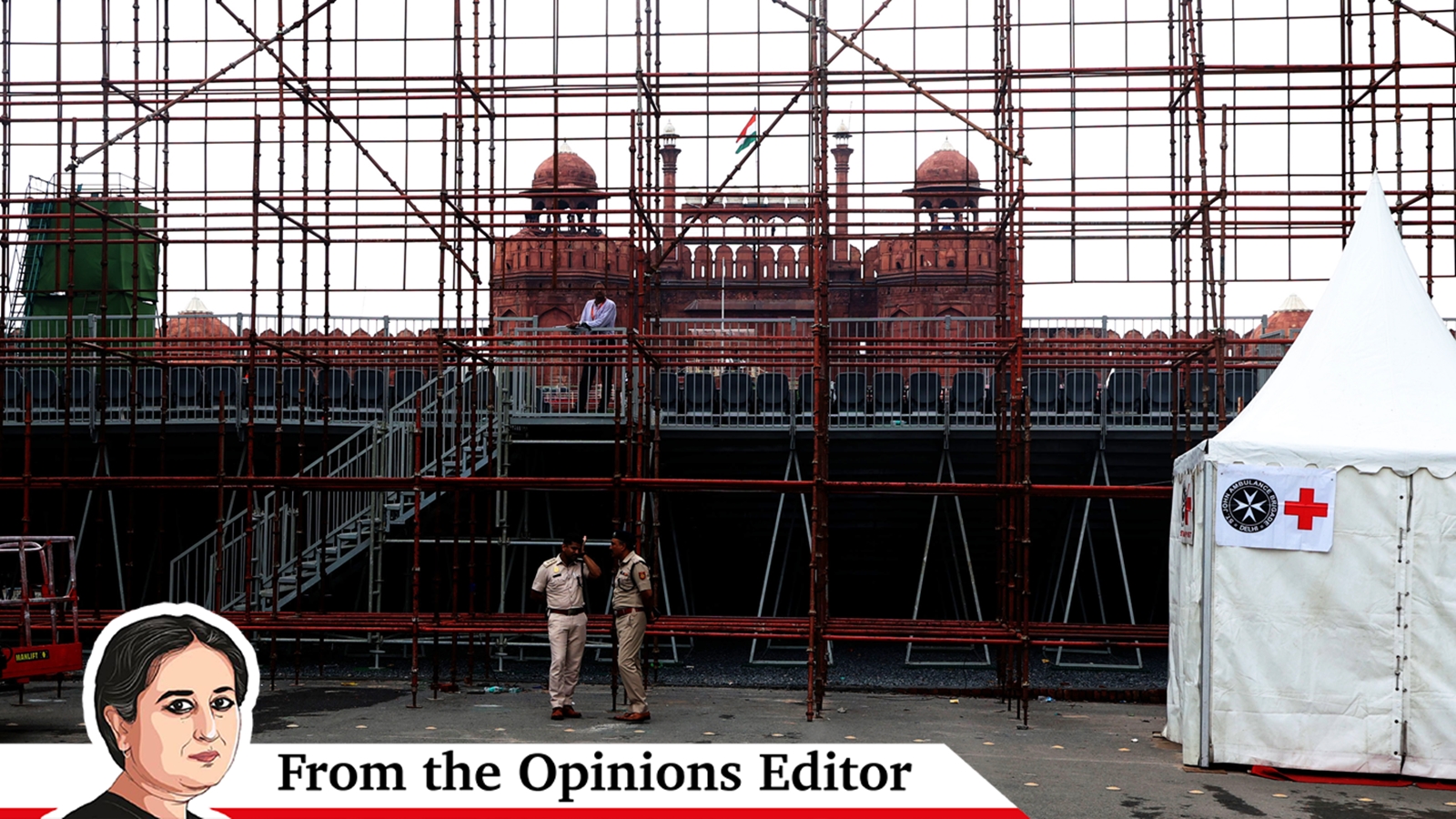India will celebrate its Independence Day on August 15, at a time when reminders are coming in from the neighbourhood of the vital task of guarding against unfreedom. Even economic progress is no guarantee of immunity against democratic backsliding — under Sheikh Hasina, per capita income in Bangladesh was higher than in India and other south Asian countries.
The implosion in Bangladesh underlines the Indian exception in terms of institutionalising democracy in a region that seems to provide fertile ground for autocracy and military dictatorships. And yet, there is no room for self-congratulation. Democracy’s roots, even when they are deep, need to be watered daily.
In a sense, the 2024 electoral verdict, which took away a comfortable majority from the ruling party and carved out standing-room-only for the Opposition, provides an apt setting for this I-Day. It casts the onus on both government and Opposition to prove themselves anew, to lower their voice and act with humility.
Because the people have spoken up for greater freedom — freedom from being taken for granted by the powerful, freedom from their overweening arrogance and hubris.
This freedom lesson is not going to be absorbed easily — by the government especially. It’s early days yet, of course, the new configurations will take time to settle down, and they will need a new language and a reworked politics. For now, this last week brought more evidence that while the Opposition is throwing its new-found voice in all directions, the government is facing challenges it is unused to dealing with.
After all, in Modi’s years as Gujarat Chief Minister and in the last 10 years as prime minister with untrammelled authority, he faced little or no pushback by either a subdued political Opposition or by unelected institutions apparently daunted by the government’s large majority. A dispensation that had made centralisation and secrecy, and shock and awe, its calling cards is now being called upon to negotiate and navigate in the harsh light of a less deferential system.
The first full session of the new Parliament ended with the INDIA bloc reportedly mulling a notice for a non-confidence or impeachment resolution against the Vice President and chairperson of the Rajya Sabha Jagdeep Dhankhar. The resolution may or may not fly, Dhankhar may or may not be guilty as charged. But the Opposition’s move is likely to turn the spotlight on a troubling image and syndrome that has so far been relegated — of the partisan chair, of the rule-book weaponised by the ruling side to deny space and voice in the House to those who sit across the aisle.
In a refreshing break from the past, heeding Opposition protests instead of ignoring them and digging in its heels, the government sent an important bill — the Waqf (Amendment) Bill 2024 — to a joint parliamentary committee. The Bill proposes key changes, including allowing a non-Muslim chief executive officer and non-Muslim members to be appointed by the state government to Waqf boards, and bringing in the district collector as arbiter on whether a property is Waqf property or government land.
By sending a Bill that stokes concerns about encroachment on religious autonomy in the minority community, to a 31-member parliamentary committee, the government may be acknowledging the force of a stronger Opposition. Or it may be putting up a token show of openness. The scepticism is born of signs in the ruling establishment, elsewhere, of an unchecked hardening — for instance, Chief Minister Himanta Biswa Sarma’s bizarre accusations of “flood jihad” against a university owned by a Bengali-origin Muslim on the outskirts of Guwahati, in the wake of severe criticism of his government’s flood management in Assam’s capital city.
Also last week, the Supreme Court’s judgement granting bail to senior AAP leader and former Deputy CM of Delhi, Manish Sisodia, could be read as a heartening pushback by the non-elected institution.
The court laid down that delay in trial and long periods of pre-trial detention are grounds to bypass stringent bail conditions in laws like the Prevention of Money Laundering Act, which set a high bar for bail, making it the exception rather than the rule. By making the process the punishment, such laws come in handy for governments to settle scores with political opponents.
Ahead of another Independence Day, then, there are signs of a much-needed renewal and rebalancing opening up more spaces of freedom in the larger polity. But this is also a moment to acknowledge that unfreedom is not just the embattled neighbour, it is only a slip and a slide away at home.
Till next week,
Vandita



